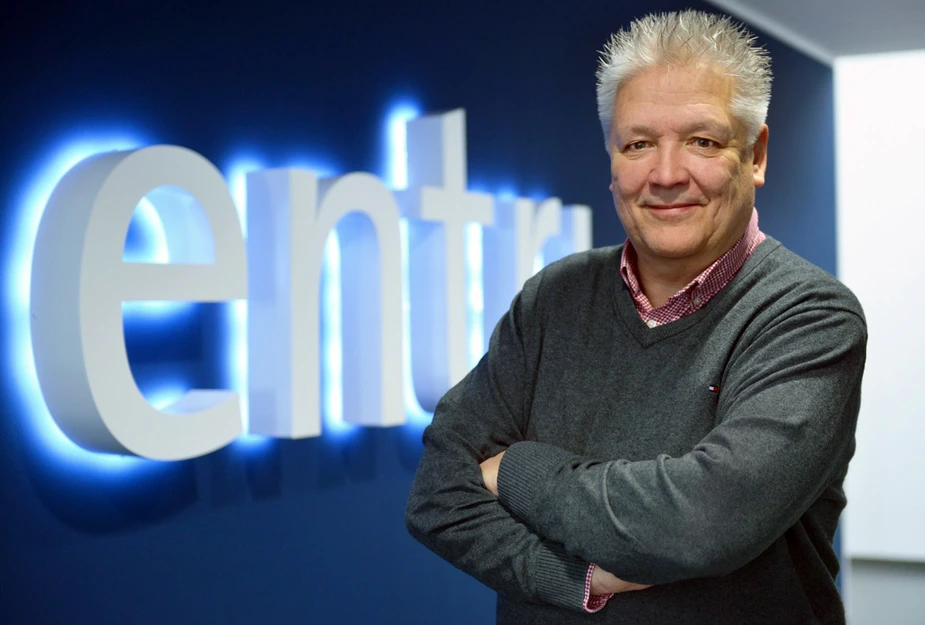The Welcome System
The IT company entri developes software-based systems for access control
Visitors are greeted by the word “entri” in huge, blue letters when they enter through the glass front door. Naturally, a company named “entri” would excel at welcoming guests to its headquarters. It’s their business idea. The company develops software-based access control systems for various business including amusement arcades, betting shops and gyms.
Entri was still called avara systems when it first introduced its access system playID in 2014. It is now being used by about 200 amusement arcades in Hessia, Rhineland-Palatinate, and Baden-Württemberg. “The new legal regulation there already calls for very strict access control,” says Ingrid Kowarzik, authorized signatory at entri and responsible for business development. Arcade owners risk losing their license if they don’t strictly comply with the required legal age and voluntary or imposed bans.
The way access control works is easy: the system starts off with identifying a person and decides whether access is authorized and whether the door is opened or not. This is usually done based on IDs or chip cards. “This is not the safest way, however, because there is a lack of staff in many businesses and chip cards can easily be swapped or passed on,” says Kowarzik. Moreover, these means of control are not very convenient and can be uncomfortable for guests. “Our mission is to provide a system that is safe and elegant. Being identified in passing, makes people feel special,” says managing director Jörg Schrickel.
Which is why entri relies on a high degree of automation and biometrical identification systems. playID, for example, uses fingerprints. A new system component named Facetrakk now uses face recognition, which is more secure and less intrusive. It will be on the market soon and has already been installed in the company’s own lobby: it consists of an automatic turnstile and a sleek metal post. The latter contains a camera and a computer that communicates with other machines via wifi. A LED lat the top of the post lights up red if access is denied and green if it is granted. The developers view this type of simple feedback as essential. This might be the reason why Jörg Schrickel’s office is adorned with large, deep-blue picture with the word “simple” on it. “We want using our products to be as simple as possible,” he says. This involves investing even more into development, as do the many statutes of the regulation agencies, which differ from state to state. The products must also be compatible with the existing solutions in the diverse businesses that entri supplies with security components, face recognition software must be adjusted to varying light conditions, and, lastly, data protection must be ensured.
These technical challenges were an important reason for Schrickel, who founded his company in 2004, to hit reset and move his company from Immenstadt im Allgäu to Berlin Adlershof in May 2016. Not an easy step, but one that has already paid off. “Now we are located closely to many business associations and Adlershof provides us with the technical support we need for our high-tech products.” While producing Facetrakk and tipID, which are now ready for the market, the company could benefit from the services of W&P GEAT GmbH, a local machine building company. Recruiting skilled employees, on the other hand, is harder than originally hoped for. The newly hired developers are currently still supported by an established network of freelancers. In the medium term, entri wants to grow to 15 to 20 employees.
This will be necessary considering all the ideas that are gushing out of Schrickel and Kowarzik for application of their products: many different institutions and businesses, including government buildings, cruise ships, or refugee housing, could benefit from the secure and convenient access systems that entri produces. The energy and attraction of Adlershof has certainly already benefited entri.
By Uta Deffke for Adlershof Journal
